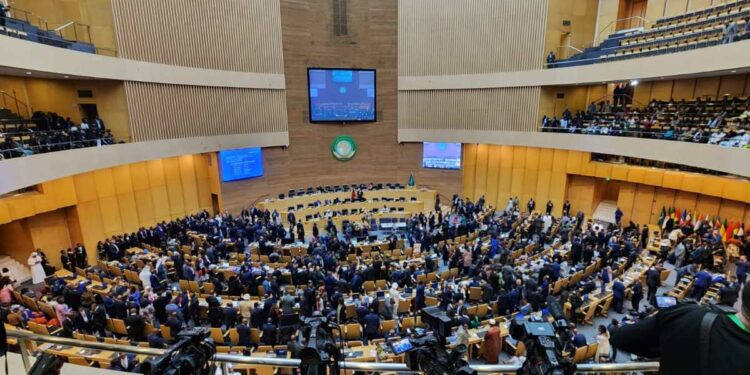The African Development Bank said that African leaders agreed to create a new financial stability fund with the aim of staving off the potential debt crises on the continent before its exacerbation.
The African Bank stated that the fund will obtain a special credit rating that allows it to borrow from the capital of international institutions.
The African leaders had called for the establishment of a special institution for financial resilience in 2022, and they assigned the African Development Bank to prepare and follow up the necessary procedures to establish them.
After the African Union summit held in the Ethiopian capital, Addis Ababa, on February 15 and 16, the African Development Bank said it was moving quickly to formulate an official agreement to establish the fund, and to ensure ratification by member states.
The membership in the new fund will be optional and open to all the member states of the African Union who wish to participate.
As for the non -member states of the African Union, arrangements have been made to include at least 20% of external members, provided that the countries of origin retain the majority of membership.
The new fund aims to provide loans at easy prices, provided that governments are committed to total and financial economic reforms.
Facing challenges
The establishment of the fund is driven by Africa’s need for financial resources, its suffering from slowing government revenues and the impacts of the climate impact on economic development.
In addition to the high external commercial payments, and the risk of backwardness, African countries face the challenges of stressing the increase in public spending.
In a statement to Reuters, Vice President of the African Development Bank and chief economist Kevin Nurama said that if the goals are implemented as determined, the financing mechanism will achieve for African countries 20 billion dollars of debt service costs on the year 2035.
Some African countries are suffering from investor concerns about their ability to pay debts, which caused a decrease in the value of the currency in Kenya and led to a decrease in the Gabon index, according to the Fitch Credit Rancing Agency classification last week.



